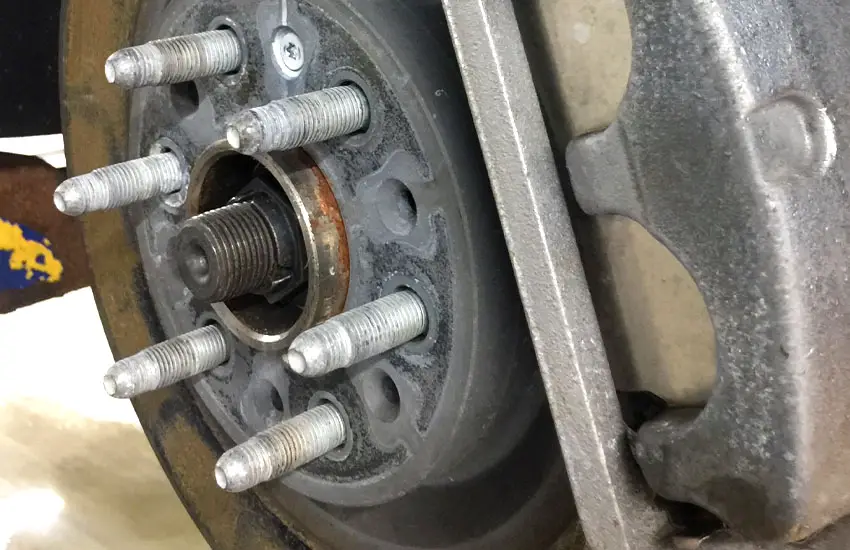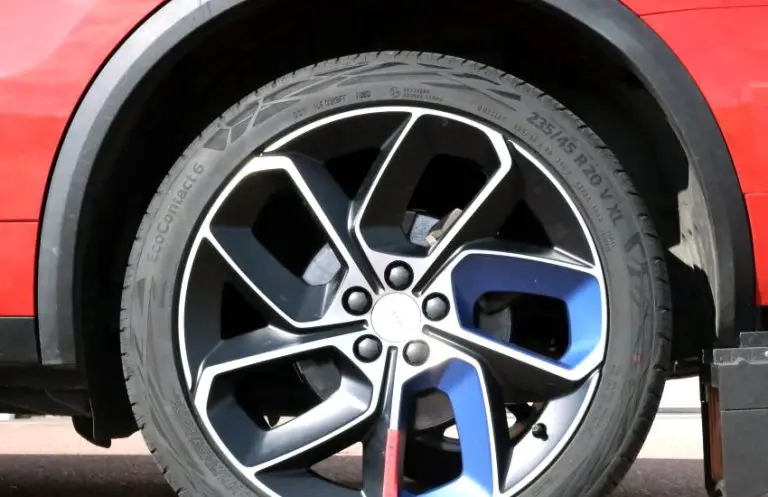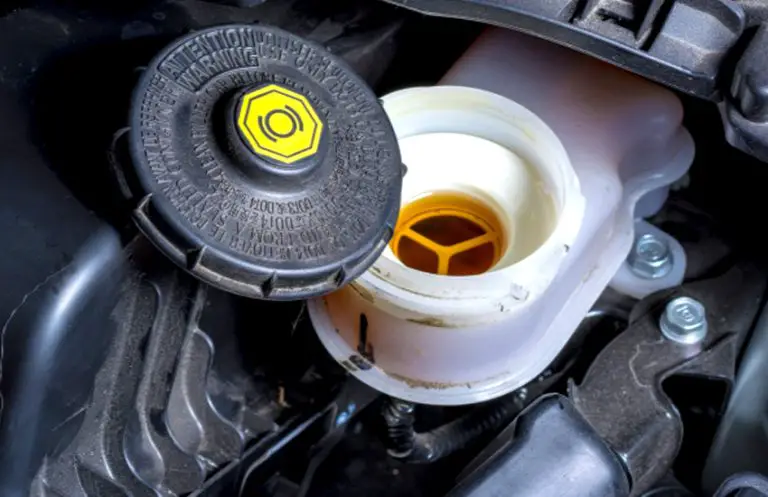Imagine this: you’re driving down the road, and suddenly, you need to stop quickly. Your car’s brakes need to respond instantly, without hesitation. But what if something goes wrong with the brake system?
It could be a minor issue, like improperly tightened brake caliper bolts, which could affect your safety. This might sound technical, but understanding the proper tightness for brake caliper bolts is crucial for ensuring safe braking performance.
In this post, we’ll dive deep into the importance of brake caliper bolt tightness, how to find the right amount of tightness, and offer practical tips for ensuring your braking system works as it should. By the end of this guide, you’ll know exactly how to keep your brakes in perfect shape for maximum safety.

Understanding Brake Caliper Bolts
Before we can talk about the proper tightness for brake caliper bolts, let’s first understand what they are and why they are essential. Brake calipers are the components that clamp down on your car’s brake discs (also called rotors) to create friction and slow your vehicle down. These calipers are held in place by brake caliper bolts, which secure them to the bracket or the vehicle’s frame.
Brake caliper bolts are not just ordinary fasteners. They play a critical role in ensuring the brake calipers function properly, especially when the brakes are applied. If these bolts are not tightly secured, the calipers could shift or move while braking, reducing their effectiveness and potentially causing uneven brake wear or failure. Tightening them properly is key to the vehicle’s overall braking system performance.
Brake caliper bolts typically come in various sizes, but they all share the same purpose: to keep the caliper firmly attached. These bolts are usually made of high-strength materials such as steel or titanium to withstand the immense pressure generated by the braking process.
Types of Brake Caliper Bolts
There are different types of brake caliper bolts depending on the design of the brake system. The most common types include:
- Floating caliper bolts: These are used in floating caliper systems, where the caliper slides from side to side to apply pressure on the brake pads. These bolts allow the caliper to move smoothly while maintaining a secure connection.
- Fixed caliper bolts: In a fixed caliper system, the caliper is stationary, and the brake pads apply pressure evenly on the rotor. The fixed bolts ensure the caliper stays firmly in place during braking.
Both types of bolts require precise tightening to prevent issues like caliper movement or brake failure.
Why Proper Tightness Matters
Tightening brake caliper bolts to the correct specification is critical for several reasons. First, it ensures that the brake calipers remain securely attached to the vehicle’s frame. This prevents them from becoming loose, which could lead to inconsistent braking performance, excessive brake pad wear, or even brake failure.
Secondly, proper tightness prevents damage to the brake system. If the bolts are too tight, you risk stripping the threads or damaging the components. On the other hand, if they’re too loose, you risk the calipers shifting under pressure, potentially causing uneven wear on the brake pads or even losing braking power completely.
Additionally, when brake caliper bolts are properly tightened, it helps maintain the overall safety of the vehicle. An improper torque setting could result in the calipers working incorrectly, which might cause your car to pull to one side when you brake or produce abnormal sounds.
Properly tightened bolts also ensure that the brake system can perform optimally under various driving conditions, whether you’re navigating tight curves, sudden stops, or long-distance cruising.
Impact of Improper Tightness
If you tighten the bolts incorrectly—whether too tight or too loose—it can lead to several problems:
- Over-tightened bolts can cause the calipers to become misaligned, which might make the pads wear unevenly or cause the rotor to warp. Over-tightening may also damage the threads, making it difficult or impossible to remove the bolts in the future.
- Under-tightened bolts can cause the calipers to shift or move when pressure is applied, leading to poor braking performance. This can result in dangerous situations where the brakes don’t respond as quickly as you need them to.
Therefore, ensuring the bolts are tightened to the correct torque is vital for the safe and effective operation of the brake system.
How to Determine the Correct Tightness for Brake Caliper Bolts
Finding the right torque specification for brake caliper bolts is crucial for safe and effective braking performance. The correct tightness is usually provided by the vehicle or brake system manufacturer in the form of torque values, which are expressed in foot-pounds (ft-lbs) or Newton-meters (Nm).
Check the Vehicle Manual
The best place to find the correct torque specification is in the vehicle’s manual or the brake system manufacturer’s instructions. Vehicle manufacturers usually provide detailed torque settings for all critical components, including the brake caliper bolts. If you’re unsure where to find this information, a quick search online using your car’s make and model will usually yield the correct specifications.
Use a Torque Wrench
Once you have the correct torque value, you’ll need a torque wrench to ensure you’re tightening the bolts accurately. A torque wrench allows you to apply a specific amount of force, ensuring the bolts are tightened to the proper specification. Using a torque wrench is the only reliable way to make sure you don’t over-tighten or under-tighten the bolts.
Factors Affecting Tightness
While the vehicle manual or manufacturer’s instructions provide a solid starting point, there are other factors that could influence the torque setting:
- Brake pad thickness: If the brake pads are thicker or thinner than normal, it might affect how much pressure the calipers exert on the rotor, requiring slight adjustments to the bolt tightness.
- Environmental conditions: Extreme weather conditions, like high humidity or temperature, can affect the materials used in the brake caliper bolts, so it’s important to check the bolts regularly.
- Bolt material: Different materials, such as steel, aluminum, or titanium, may require different torque settings due to their varying properties. Always follow the manufacturer’s recommendations.
Steps for Tightening Brake Caliper Bolts
Properly tightening brake caliper bolts is a step-by-step process that requires care and precision. Here are the key steps you should follow to ensure that the bolts are tightened correctly:
Step 1: Gather the Necessary Tools
Before you begin, make sure you have all the necessary tools:
- A torque wrench
- A socket set with the appropriate socket size
- A car jack and jack stands (if necessary)
- A safety gear (gloves, goggles)
Step 2: Lift the Vehicle (If Necessary)
If you’re working on a car, you may need to lift it off the ground to access the brake calipers. Always use a car jack and secure the vehicle with jack stands to ensure it doesn’t move while you’re working.
Step 3: Locate the Brake Caliper Bolts
Once the vehicle is secure, locate the brake caliper bolts. Depending on your car, there might be two or more bolts that hold the caliper in place. Identify them before proceeding.
Step 4: Hand-tighten the Bolts
Start by hand-tightening the brake caliper bolts to make sure they’re seated correctly. This ensures the caliper is in the correct position and won’t shift while you apply the final torque.
Step 5: Apply Torque with the Torque Wrench
Using the torque wrench, apply the specified torque value to each bolt. Work in a crisscross pattern to ensure even tightening. This helps distribute the pressure evenly across the caliper and prevents warping.
Step 6: Double-Check the Tightness
After you’ve applied the correct torque to all bolts, double-check the tightness to make sure nothing is too tight or too loose.
Step 7: Lower the Vehicle
Once the bolts are tightened correctly, lower the vehicle back to the ground, ensuring that the brake system is intact and secure.
Common Mistakes to Avoid
When tightening brake caliper bolts, there are a few common mistakes that can compromise safety. Here are some errors to avoid:
Over-tightening the Bolts
As mentioned earlier, over-tightening the bolts can cause more harm than good. It might damage the threads or misalign the brake system. Always follow the specified torque values and never use excessive force.
Under-tightening the Bolts
On the flip side, under-tightening the bolts can be just as dangerous. If the bolts are too loose, the calipers may shift or move, reducing braking performance. Ensure you use a torque wrench to apply the correct amount of pressure.
Using the Wrong Tools
Using the wrong size socket or a faulty torque wrench can lead to incorrect tightening. Make sure you’re using the right tools for the job to avoid errors.
Ignoring Regular Maintenance
Brake caliper bolts can loosen over time due to heat, vibration, and regular use. Always check the tightness of these bolts periodically, especially if you notice any unusual braking sounds or behaviors.
Tips for Ensuring Safe Braking Performance
Ensuring safe braking performance goes beyond just tightening the caliper bolts. Here are some additional tips for keeping your braking system in top shape:
Regular Inspection
Inspect the brake system regularly to check for signs of wear or damage. Pay attention to the brake pads, rotors, and calipers. If anything looks worn out or damaged, replace it before it becomes a problem.
Lubrication
Use the right kind of lubricant on the brake caliper bolts to prevent corrosion and ensure smooth operation. Avoid over-lubricating, as excess grease can attract dirt and debris, which can affect the braking performance.
Keep Brake Pads in Good Condition
Always replace brake pads before they become too thin. Worn-out pads can reduce the effectiveness of the brakes and cause uneven wear on the rotors.
Test Brakes After Maintenance
After you’ve finished tightening the brake caliper bolts or performing any brake maintenance, test the brakes to ensure everything works properly. Drive carefully and test for smooth braking without any pulling to one side or unusual noises.
I hope this article has helped you understand the importance of the proper tightness for brake caliper bolts. By following the right steps and guidelines, you can maintain a safe braking system and enjoy smoother, more reliable driving.
Are These Questions in Your Mind?
Is it safe to drive with loose brake caliper bolts?
Driving with loose brake caliper bolts is dangerous as it can affect braking performance and potentially lead to brake failure.
Can over-tightening brake caliper bolts damage the brake system?
Yes, over-tightening can damage the threads or cause misalignment, which can negatively affect braking performance.
Do I need a torque wrench to tighten brake caliper bolts?
Yes, a torque wrench is necessary to ensure you tighten the bolts to the manufacturer’s recommended torque specifications.
Can I use regular hand tools to tighten brake caliper bolts?
It’s better to use a torque wrench for precise tightening, but hand tools can be used for initial tightening.
Is it important to check brake caliper bolts periodically?
Yes, regular checks help ensure that the bolts remain secure and the brake system is functioning properly.
Can loose brake caliper bolts cause brake failure?
Yes, loose bolts can cause the caliper to move, resulting in poor braking performance or complete brake failure.
Do I need to lubricate brake caliper bolts?
Yes, lubricating the bolts can prevent rust and corrosion, but be cautious not to over-apply the lubricant.
Is it safe to drive after tightening the brake caliper bolts?
Yes, once the bolts are properly tightened, it is safe to drive, but always test the brakes first.
Can brake caliper bolts be reused?
In most cases, brake caliper bolts can be reused as long as they are not damaged or worn out.
Do I need to replace brake caliper bolts after every brake pad change?
It’s not always necessary, but if the bolts are showing signs of wear or damage, it’s best to replace them for safety.


